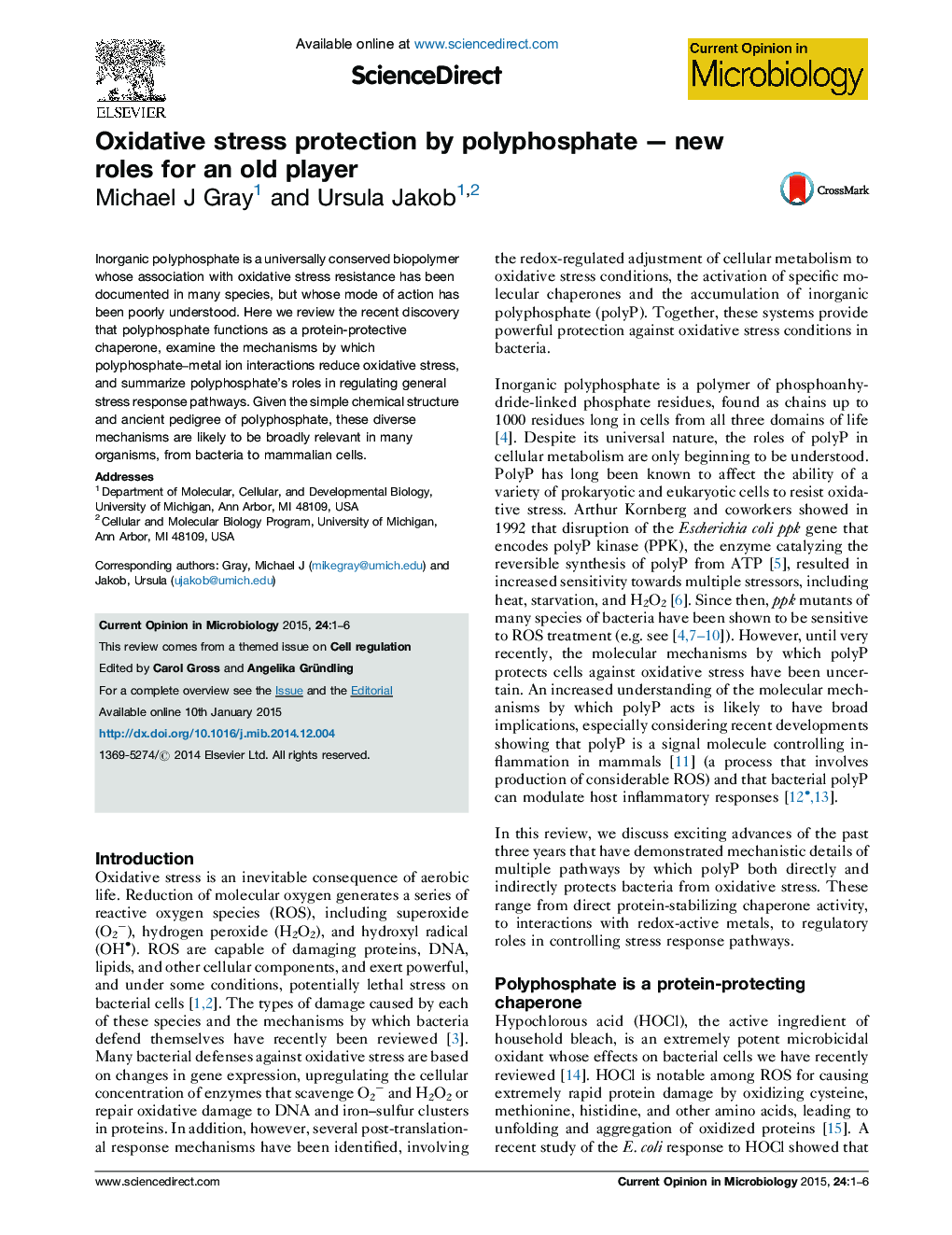| Article ID | Journal | Published Year | Pages | File Type |
|---|---|---|---|---|
| 3399045 | Current Opinion in Microbiology | 2015 | 6 Pages |
•Polyphosphate protects bacteria from oxidative stress by multiple mechanisms.•Polyphosphate is a chaperone that prevents aggregation of oxidized proteins.•Polyphosphate–metal complexes lower levels of ROS and redox-active metals in cells.•Polyphosphate is a key regulator of persister cell formation.•Polyphosphate is involved in regulation of general stress response networks.
Inorganic polyphosphate is a universally conserved biopolymer whose association with oxidative stress resistance has been documented in many species, but whose mode of action has been poorly understood. Here we review the recent discovery that polyphosphate functions as a protein-protective chaperone, examine the mechanisms by which polyphosphate–metal ion interactions reduce oxidative stress, and summarize polyphosphate's roles in regulating general stress response pathways. Given the simple chemical structure and ancient pedigree of polyphosphate, these diverse mechanisms are likely to be broadly relevant in many organisms, from bacteria to mammalian cells.
